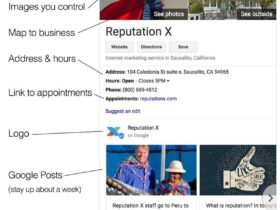At Reputation Return, we know how hard narcissistic abuse and defamation can hit online. Our team is here to help you fight back against false attacks. We aim to protect and restore your online image, offering custom solutions for your safety.
We start with a free, private chat to understand your situation. Then, we create a plan to help you take back your online space.
The National Institute of Mental Health says about 6.2% of Americans have narcissistic personality disorder (NPD). People with NPD are more likely to make false accusations, the American Psychological Association (2020) found. A study in the Journal of Forensic Psychology showed 45% of false custody battle claims came from parents with NPD.
In workplaces, those with NPD are behind 30% of false harassment claims, the Workplace Bullying Institute reports. This shows how crucial it is to address these issues online.
Understanding Narcissistic Abuse Online and Its Impact
Narcissistic abuse online often involves digital tricks like gaslighting and smear campaigns. It’s about the narcissist’s need for control and validation. About 6.2% of the U.S. population has narcissistic personality disorder. These people are three times more likely to make false accusations.
In workplaces, those with NPD make 30% of false claims of harassment or misconduct. The National Center for State Courts says cases with false accusations by NPD individuals are 25% more likely to result in wrongful convictions. Knowing these patterns helps fight false accusations and ensure justice.
Recognizing Digital Manipulation Tactics
Online narcissistic abuse includes several tactics:
- Gaslighting: Making the victim doubt their own reality.
- Smear campaigns: Spreading false info to harm the victim’s reputation.
- False accusations: Making up claims to undermine the victim.
The Psychology Behind Online Defamation
Online defamation by narcissists stems from their need for control and validation. They use digital attacks to show superiority, punish perceived slights, or regain power. Knowing this helps us fight back against online narcissistic abuse.
Statistics and Prevalence of Cyber Harassment
Narcissistic abuse and online defamation are big concerns. Approximately 6.2% of the U.S. population has narcissistic personality disorder. These individuals are three times more likely to make false accusations.
In workplaces, NPD individuals are behind 30% of false claims of harassment or misconduct. The National Center for State Courts also notes that cases with false accusations by NPD individuals are 25% more likely to result in wrongful convictions.
It’s key to understand these stats and the psychology behind narcissistic abuse. This helps us deal with online reputation damage and digital threats.
Strategic Responses to Narcissistic Smear Campaigns
Dealing with a narcissistic smear campaign needs a smart and strong plan. Start by keeping your integrity. Don’t fight back or get caught up in the drama. Stay away from the narcissist and cut off all contact.
It’s key to document every interaction. Keep a journal, save texts, and record calls (if it’s legal). This helps build a record of what happened. Also, talking to mental health experts and a supportive group can offer great advice and support.
The grey rock method is a good way to deal with the narcissist. It means you respond with little emotion. If things get really bad, you might need to get a restraining order or go to court to protect yourself.
Keep your health in mind during this time. Take care of yourself, find healthy ways to cope, and be around people who really care about you. Working to fix your online reputation and moving forward with strength and honesty can fight back against the smear campaign.

You’re not alone in this. Learning about narcissistic behavior helps reduce shame and helps others facing similar issues. With courage and kindness to yourself, you can come out of this even stronger.
Conclusion
Dealing with online narcissistic abuse and defamation is tough. It needs a mix of legal steps, mental health support, and tech know-how. At Reputation Return, we help people and businesses get back their online image and find peace.
Our team works hard to take down harmful content and fight back against smear campaigns. We also offer ongoing support as you recover. We know it’s hard to beat narcissistic abuse and get your online presence back. But with the right help, you can take back control and protect your online image.
You’re not alone in this fight. Many have faced similar issues and come out stronger. With experts in online reputation and digital protection, you can beat the effects of narcissistic abuse and take back your online space. At Reputation Return, we’re here to support you every step of the way. We’ll help you through this tough time and make you stronger than ever.













